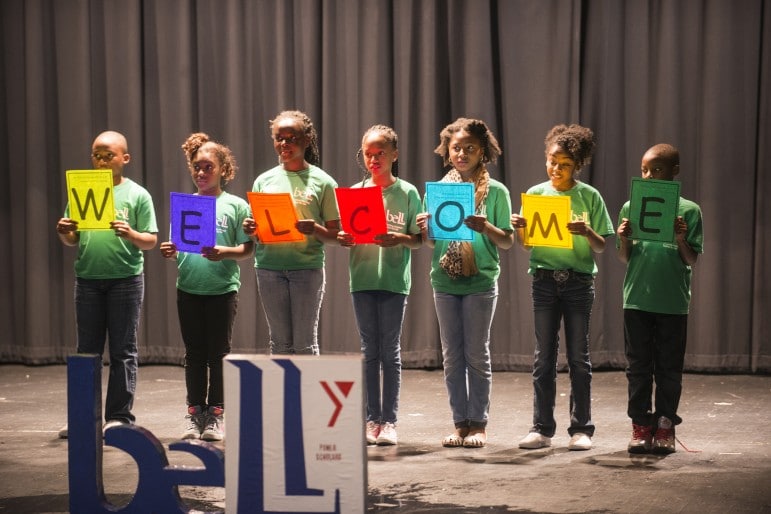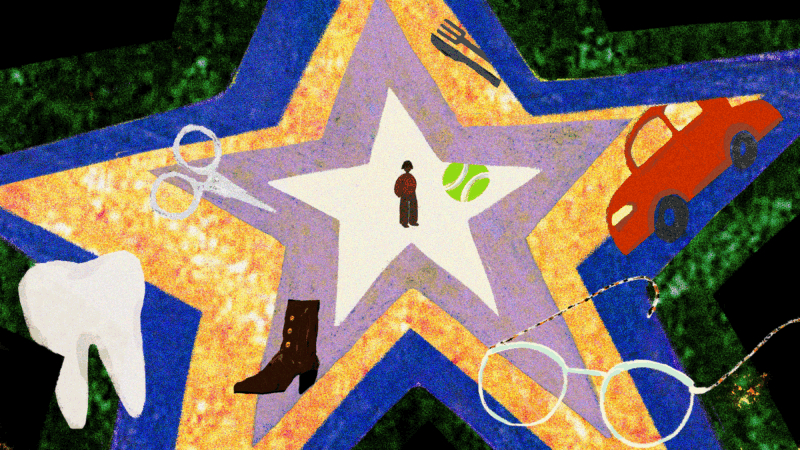Summer’s Season Of Learning Can Impact Graduation Rates
National education leaders are trumpeting recent increases in high school graduation rates, yet about 20 percent of kids still dropout before completing high school. That number jumps significantly among the Southern poor in places like Alabama and Mississippi. And it costs money. Dropouts earn less and governments pay more to support them. One possible solution? Make summer a season of learning for students that could help them stay engaged and in school. Sherrel Wheeler Stewart kicks off the Southern Education Desk series on Summer Learning and its impact high school graduation.
Talk with rising fourth grade students in the Power Scholars Academy at Montgomery, Alabama’s Carver Elementary School and they’ll quickly tell you about their plans for the future.
“I want to be an artist,” says 10-year-old Jordan Lane.
“I want to go to Troy University, study education and be a teacher,” says 9-year-old Sydney Phelps.
The girls know what they want out of life. Before they finish college and grab those dream jobs, they also know there are hurdles ahead – like high school, and what’s more, high school graduation.
National education leaders are trumpeting recent increases in high school graduation rates, yet about 20 percent of kids still dropout before completing high school. That number jumps significantly among the Southern poor in places like Alabama and Mississippi. And it costs money. Dropouts earn less and governments pay more to support them.
One possible solution is to make summer a season of learning for students that could help them stay engaged and in school.
Programs like this free summer academy in Alabama’s capital city, hope to keep students on track for graduation and avoid the summer learning slip that often plagues poor and minority youths.
“Kids can’t be left at home for three months without having something to do,” says Alma Powell of America’s Promise Alliance. This non-profit group wants to increase the graduation rate to 90 percent nationwide by 2020. “It’s imperative to keep the learning going, and you can do that in a fun setting,” she says.
At Carver, they”re working toward that goal. Children were singing and dancing in preparation for the end of the summer ceremony to show parents what they learned in the six-week program.
They’ve had hands on studies in math. They’ve studied reading, science and the arts too, says Jacqueline Jackson, instructional coach.
“We’re using songs. We’re doing it through the arts. We’re doing it through stems, so learning is fun to all of our scholars,” Jackson says.
The YMCA and Building Educated Leaders for Life (BELL) invest in the academy to help propel students through these critical elementary learning years, Jackson says.
“It’s very important that once they reach fourth grade they are reading on grade level in order to help them graduate,” she says. “Once they are here, I think we have them pretty much, locked in.”
Sarah Pitcock of the National Summer Learning Association says summer programs face hurdles.
“There is a perception that summer school is punishment and a lot of children and their families don’t want to spend their summers that way,” Pitcock says.
But the hot days of summer bring benefits for students when they’re spent soaking up learning, she says. “Summer is the only chance kids have to get caught up and get ahead,” she says..
And that boost helps kids from falling behind and being held back says Sandy Addis of the National Dropout Prevention Center.
“Summer programs are a great anti-retention tool, and we know that there is a strong correlation between being retained in grade and not graduating,” he said. “Anything that magnetizes a child to school certainly will help.”
At Camp Fletcher, just west of Birmingham, dozens of campers spend their summer trekking through the woods, canoeing, singing and of course – swimming. But this camp is more than just a summer get away for kids like 4th grader Lauren Parish.
“Sometimes when we go on nature hikes, we learn about fish, and trees and birds. At school, we still talk about nature, and it’s good to know these things,” Parish said.
Often the key to success for children is linked to the positive role modeling of counselors, like Courtney King, at Camp Fletcher. A counselor helped her through a difficult period after the death of her mother. She now returns from Mississippi State to help others.
She says she enjoys “working on completing things and like trying to encourage the kids not to give up. Even if they are not the best, you encourage them to still do it and still try it.”
Alma Powell of America’s Promise says it’s those kind of mentoring experiences that can help propel more students to graduate.
“That old saying, it takes a village to raise a child – it does,” Powell says. “It takes the entire community committed to young people.”
Something she said every citizen in this country ought to be a part of.
This report was made possible through a grant from the Corporation for Public Broadcasting.
Pentagon shifts toward maintaining ties to Scouting
Months after NPR reported on the Pentagon's efforts to sever ties with Scouting America, efforts to maintain the partnership have new momentum
Why farmers in California are backing a giant solar farm
Many farmers have had to fallow land as a state law comes into effect limiting their access to water. There's now a push to develop some of that land… into solar farms.
Every business wants your review. What’s with the feedback frenzy?
Customers want to read reviews and businesses need reviews to attract customers. But the constant demand for reviews could be creating a feedback backlash, experts say.
‘Get back to integrity’: Oklahoma’s Kevin Stitt on Republicans after Trump
NPR's Steve Inskeep asks Oklahoma Gov. Kevin Stitt about his spat with President Trump, immigration and the future of the Republican Party.
Civil rights leaders say the racial progress Jesse Jackson fought for is under threat
Activists say racial progress won by the Rev. Jesse Jackson is under threat, as a new generation of leaders works to preserve hard-fought civil rights gains.
Tariffs cost American shoppers. They’re unlikely to get that money back
After the Supreme Court declared the emergency tariffs illegal, the refund process will be messy and will go to businesses first.






